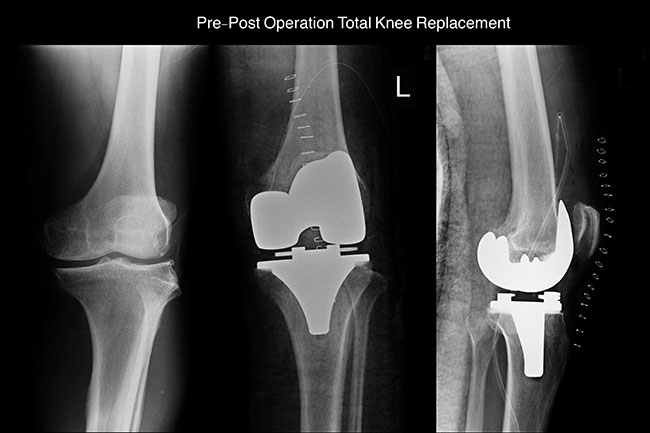This section was created to inform you about the different types of injections that are available for people with knee osteoarthritis. Where possible, people should attempt to manage their symptoms with first-line treatments and topical or oral medications before considering injections. Information in this section has been created to provide you with information about the various options.
The video to the right is with Ali Gibbs, a specialist physiotherapist and knee osteoarthritis researcher, who will provide you with more information about injections.
Frequently Asked Questions (FAQs)
The main injection options, alongside some key information about each are provided below:
Cortisone injections
- These are powerful anti-inflammatories and therefore have similar risks to those of topical or oral anti-inflammatories.
- They may provide some pain-relief, however their effects are generally short-lived. However some people do have longer-term positive outcomes.
- There is some research to suggest that they actually accelerate the condition of knee osteoarthritis and are associated with an increased risk of having a total knee replacement.
Hyaluronic acid injections
- These again are anti-inflammatory in nature
- They also aim to restore the ‘natural fluid’ within the knee joint, however they do not appear effective at doing this in the long-term.
- They also usually only result in short-term temporary pain relief.
Platelet-rich plasma (PRP) injections
- These are less common options for people with knee osteoarthritis.
- They aim to regenerate tissues within the joint however research has not yet determined if they are successful in doing this.
- Evidence is mixed on their effectiveness for improving pain.
- Most medical guidelines recommend against their use due to their limited effectiveness and issues around ‘how’ they are performed.
Stem cell injections
- Medical guidelines are unanimous in recommending against their use due to safety and concerns about methods in which they are performed.
- There is also a lack of evidence to support their use from high-quality trials.
There is no simple answer to this question. The decision to have an injection should be extensively discussed between you and your healthcare practitioner including the benefits and risks of receiving it. Remember that you should attempt to manage your symptoms with first-line treatments and topical or oral medications before considering injections. It is also important to remember that injections are not long-term solutions to your symptom control.
Yes!!
Injections are only suitable for ‘some’ people with knee osteoarthritis. Additionally, their effectiveness is short-lived.
Absolutely Yes!!!
Injections tend to only offer temporary symptom relief. In the long-term, the best options available for your knee osteoarthritis are the first-line treatments mentioned in this website. Click here to revisit the first-line treatment page and learn more (or refresh your memory) on the topic.
Next – Hot or cold
